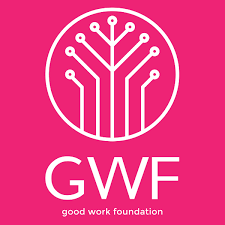As the world prepares for COP29, the spotlight is on how organizations, from large corporations to small businesses and NGOs, can actively contribute to sustainable development. By embedding the United Nations Sustainable Development Goals (SDGs) into their operations, not only do these organizations support a global mission to tackle pressing social and environmental issues, but they can also enhance their own performance, gain community trust, and boost profitability or fundraising efforts.
For the Good Work Foundation (GWF), an education non-profit working across rural Mpumalanga and the Free State, the SDGs are a guide for impactful work in underserved communities. Our mission is to provide supplementary, digitally-driven education in regions that often lack access to quality schooling. At first glance, the SDGs may seem removed from daily challenges in rural villages near the Kruger National Park. Yet, these areas, on the frontline of poverty and inequality, benefit most from SDG-driven initiatives that address access to decent healthcare, quality education, and economic opportunity.
Why the SDGs Matter for NGOs and SMMEs
More and more, corporations are incorporating environmental, social, and governance (ESG) criteria into their operations, recognizing the link between these considerations and long-term success. Similarly, NGOs and small to medium-sized enterprises (SMMEs) in South Africa can leverage the SDGs to assess and improve the sustainability of their actions. For GWF, the SDGs offer a universal framework that aligns with our mission, allowing us to focus on four core goals:
- SDG 4 (Quality Education): Central to our mission.
- SDG 8 (Decent Work and Economic Growth): Creating employment opportunities in underserved regions.
- SDG 10 (Reduced Inequalities): Ensuring equal access to education.
- SDG 17 (Partnerships for the Goals): Forming alliances with other entities for greater impact.
To track our progress, we use a straightforward tool—the Paragon +Grading system—to measure our contributions across these SDGs. Regularly evaluating our performance highlights areas where we excel and identifies gaps to address, offering transparency and accountability. We even review our impact on goals that might seem less relevant, such as SDG 9 (Industry, Innovation, and Infrastructure), realizing that our partnerships with local transport providers to offer affordable rides for students contribute significantly to this goal. Additionally, small businesses around our campuses are flourishing as they cater to our staff and students, supporting local economic growth.
Using an SDG Scorecard: Insights and Benefits
An ESG/SDG impact scorecard provides a clear overview of how we’re progressing on sustainability and ethical practices. For example, a simple yet powerful change, like switching a diesel generator for solar panels, aligns with both environmental goals and long-term savings. For GWF, these insights underscore our commitment to reducing inequalities and supporting sustainable infrastructure while working to transform education access in rural South Africa.
Moreover, tangible evidence of impact strengthens our relationships with donors and partners. An SDG-centered reporting framework showcases our commitment to transparency and social responsibility, appealing to increasingly discerning stakeholders who value ethical, environmentally aware organizations. Younger generations, particularly Gen Z, expect more from the brands and causes they support, demanding accountability and concrete action rather than surface-level commitments.
Building a Legacy of Purpose and Profit
Blending purpose with profit not only builds a loyal support base but also strengthens an organization’s potential for longevity and meaningful impact. Organizations that genuinely integrate the SDGs into their strategies—not just as a compliance measure but as a guiding ethos—stand to gain in credibility, community support, and sustainable growth. This approach can even lead to recognition, like the prestigious B Corp certification, which honors companies dedicated to creating public good through responsible practices.
At GWF, we have seen firsthand the impact of integrating the SDGs into our work. From empowering youth to promoting inclusive employment practices and forming strategic partnerships, we remain committed to creating a positive social impact. Yet, we know that our efforts alone are just a small part of the change needed. Imagine the collective power if more organizations committed to embedding, tracking, and expanding their social and environmental contributions.
The Future is Sustainable—Join the Movement
The world cannot sustain exploitative practices that disregard social and environmental well-being. Embracing the SDGs and aligning your operations with these goals can create a foundation for success that benefits people, the planet, and your organization’s bottom line. The question is: what sustainable impact is your organization making, and how can it be enhanced?












